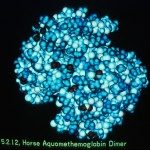Link to Pubmed [PMID] – 31770111
J. Clin. Invest. 2020 Mar;130(3):1330-1335
Omalizumab is an anti-IgE monoclonal antibody (mAb) approved for the treatment of severe asthma and chronic spontaneous urticaria. Use of omalizumab is associated with reported side effects ranging from local skin inflammation at the injection site to systemic anaphylaxis. To date, the mechanisms through which omalizumab induces adverse reactions are still unknown. Here, we demonstrated that immune complexes formed between omalizumab and IgE can induce both skin inflammation and anaphylaxis through engagement of IgG receptors (FcγRs) in FcγR-humanized mice. We further developed an Fc-engineered mutant version of omalizumab, and demonstrated that this mAb is equally potent as omalizumab at blocking IgE-mediated allergic reactions, but does not induce FcγR-dependent adverse reactions. Overall, our data indicate that omalizumab can induce skin inflammation and anaphylaxis by engaging FcγRs, and demonstrate that Fc-engineered versions of the mAb could be used to reduce such adverse reactions.




